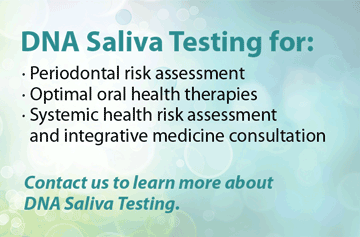
Dementia is a progressive neurological condition marked by a decline in cognitive function beyond what’s considered part of normal aging. It manifests in various forms such as Alzheimer’s disease and vascular dementia, impairing memory, thinking, behavior, and the ability to perform daily tasks. According to the World Health Organization, around 50 million people worldwide have dementia, and this number is projected to reach 82 million by 2030. The impact of dementia is profound – it affects not only the individuals living with the condition but also their families, communities, and society as a whole.
Dementia prevention is gaining recognition as a proactive approach to curb this looming health crisis. While we can’t eliminate all dementia risk— certain factors like age and genetics are non-modifiable—we can actively influence many others. This article delves into science-backed strategies to reduce your risk of developing this debilitating condition.
We’ll explore modifiable risk factors for dementia and how you can address them through lifestyle changes and other interventions. Embracing healthy habits, staying physically active, nurturing social connections, and keeping mentally stimulated form the crux of these preventive measures. Whether you’re seeking to maintain your brain health or support someone at risk of dementia, this guide provides practical insights grounded in scientific research.
Understanding Dementia Risk Factors
Dementia risk factors can be categorized as either modifiable or non-modifiable. It’s crucial to understand the difference between these two categories in order to know how to reduce the chances of developing dementia.
Non-Modifiable Risk Factors
Age and Genetics
The most significant non-modifiable risk factors are age and genetics.
- Age: The older you get, the higher the likelihood of developing dementia. According to Alzheimer’s Association, the number of people with Alzheimer’s, a type of dementia, doubles every five years beyond age 65. However, it’s important to remember that while age increases risk, dementia is not a normal part of aging.
- Genetics: Your genetic makeup also plays a role in your vulnerability to developing dementia. Certain genes can make you more prone to Alzheimer’s disease and other types of dementia. The presence of one specific gene called APOE-e4 has been associated with an increased risk for Alzheimer’s disease.
While you cannot change your age or genetic makeup, understanding their impact can help you focus on the aspects within your control: modifiable risk factors.
Modifiable Risk Factors
Hypertension
Hypertension, commonly known as high blood pressure, has long been identified as a key modifiable risk factor for dementia. High blood pressure, particularly in midlife, can harm your brain’s health by damaging the delicate blood vessels that supply your brain with oxygen and nutrients.
A study published in Neurology found that people with high blood pressure in their 40s were at a significantly higher risk for developing dementia later in life than those with normal blood pressure levels. This highlights the importance of managing hypertension through lifestyle changes and medication when necessary.
Obesity
Obesity is another modifiable risk factor for dementia. Excess body weight, especially around the midsection, has been linked to an increased risk of cognitive decline.
A study published in The Lancet Diabetes & Endocrinology observed that people who were overweight or obese in midlife were at a higher risk of developing dementia later in life. This suggests that maintaining a healthy weight throughout your life could help reduce your dementia risk.
In summary, modifiable risk factors for dementia are aspects within your control. By managing hypertension and maintaining a healthy weight, you can significantly lower your risk of cognitive decline.
It’s important to note that addressing these factors does not guarantee immunity from dementia but rather reduces the odds.
Promoting Brain-Healthy Habits: Lifestyle Interventions for Dementia Prevention
Lifestyle choices have a profound influence on brain health. By adopting certain behaviors and habits, you can play an active role in maintaining cognitive function and potentially reducing the risk of dementia.
Diet and Dementia Prevention
One of the most significant lifestyle factors is diet. Research consistently points to nutrition as a key element in preventing cognitive decline. A heart-healthy diet not only supports cardiovascular health but also brain health. Among the dietary patterns, the Mediterranean diet stands out for its potential to lower dementia risk.
The Mediterranean Diet
The Mediterranean diet is known for its benefits in promoting brain health. It includes:
- 1. Rich in Fruits and Vegetables: These foods are high in antioxidants and phytonutrients that protect brain cells from damage.
- 2. Whole Grains: A source of fiber and complex carbohydrates, whole grains help maintain stable blood sugar levels.
- 3. Healthy Fats: Olive oil and nuts provide monounsaturated fats that support brain health.
- 4. Lean Proteins: Fish and legumes offer omega-3 fatty acids and other nutrients essential for neuroprotection.
- 5. Limited Red Meat Consumption: Reducing red meat intake is associated with a lower risk of cognitive issues.
By incorporating these elements into your daily meals, you may help protect your brain from the effects of aging and reduce the risk of dementia.
Cognitive Activities
Mental stimulation plays a crucial role in keeping your mind sharp. Engage in activities that challenge your brain:
- 1. Learning New Skills: Whether it’s a new language or musical instrument, learning stimulates neural connections.
- 2. Puzzles and Games: Crossword puzzles, sudoku, and strategic games can enhance problem-solving abilities.
- 3. Reading and Writing: These activities stimulate your imagination and improve literacy, which is beneficial for cognitive health.
Regular participation in such mentally stimulating activities has been linked to improved brain function and could be instrumental in staving off cognitive decline.
Social Engagement
Social connections may safeguard against dementia by providing emotional support and cognitive stimulation.
Benefits of Social Engagement
Cognitive Stimulation: Conversations require mental agility and memory use.
Emotional Support: Positive social interactions can reduce stress, which is harmful to brain cells.
Sense of Purpose: Feeling valued and engaged in the community contributes to overall well-being.
To foster social connections:
- Join clubs or groups centered around hobbies or interests.
- Volunteer within your community.
- Stay in touch with family and friends through regular meet-ups or digital communication tools.
By focusing on nutrition, mental exercise, and social engagement, you create a strong foundation for brain health that may prove crucial in preventing dementia. While genetics play a role in determining risk, these modifiable factors are within your control. With each healthy meal, every new skill learned, and every social interaction enjoyed, you take proactive steps toward a healthier brain.
The Impact of Physical Exercise on Dementia Risk Reduction
Physical exercise is a powerful way to lower the risk of dementia, as many studies have shown. Making regular physical activity a part of your life can bring significant benefits to your brain health and help protect against cognitive decline.
Research Highlights:
Here are some key findings from research on the relationship between physical activity and cognitive health:
1. Adults who engage in physical activity have a lower risk of developing cognitive impairments.
2. Exercise improves blood flow to the brain, which can support the growth of new brain cells and connections that are important for maintaining cognitive function.
Types of Exercise Beneficial for Brain Health:
Certain types of exercise are particularly beneficial for brain health. These include:
- 1. Aerobic activities: Such as walking, jogging, swimming, and cycling. These activities increase heart rate and promote cardiovascular health.
- 2. Strength training: This type of exercise helps build muscle mass and improve metabolic function, which may also have positive effects on cognition.
Recommended Duration and Intensity:
Experts recommend the following guidelines for physical exercise to support brain health:
Aim for at least 150 minutes of moderate-intensity aerobic exercise per week.
Include muscle-strengthening activities on two or more days a week.
Practical Advice:
Here are some practical tips for incorporating physical activity into your routine to reduce the risk of dementia:
- 1. Choose activities that you enjoy and can easily fit into your schedule. This will make it more likely for you to stick with them in the long run.
- 2. Set realistic goals and gradually increase your activity levels over time. Remember that even small amounts of exercise can still be beneficial.
- 3. Consult with healthcare professionals, such as your doctor or a fitness trainer, to create an exercise plan that is safe and suitable for your individual health needs.
By making physical activity a regular part of your life, you are taking proactive steps to protect your brain health and lower the chances of developing dementia.
Conclusion
The evidence is clear: adopting a combination of healthy lifestyle approaches and targeted interventions has significant potential to reduce dementia risk. By embracing habits that prioritize cardiovascular health, mental stimulation, and robust social connections, you can take meaningful steps toward dementia prevention. This includes prevention for Alzheimer’s disease, a major form of dementia affecting millions worldwide.
You are encouraged to prioritize brain health today to help build a society that actively works towards preventing dementia. Every action counts, from choosing nutritious foods to incorporating regular physical activity into your daily routine.
For those in Los Angeles and California seeking more information on dementia prevention, numerous resources are available:
- 1. Centers for Disease Control and Prevention (CDC): Provides comprehensive guidelines on healthy living for brain health.
- 2. World Health Organization (WHO): Offers global recommendations on reducing modifiable risk factors for dementia.
- 3. Local Health Departments: Can offer community-specific programs and support services focused on dementia prevention in Los Angeles and California.
By staying informed and proactive, you can contribute to the growing movement of individuals committed to fostering cognitive well-being and reducing the burden of dementia in our communities.
FAQs (Frequently Asked Questions)
What is dementia and why is it significant?
Dementia is a condition that affects cognitive functions such as memory, reasoning, and communication, with a significant impact on individuals and society. It is crucial to focus on dementia prevention as a proactive approach to reduce the burden on healthcare systems and improve the quality of life for affected individuals.
What are the modifiable and non-modifiable risk factors for dementia?
Dementia risk factors can be categorized into modifiable and non-modifiable factors. Non-modifiable factors include genetics and age, while modifiable factors encompass lifestyle behaviors such as diet, physical activity, and cognitive engagement.
How does physical exercise contribute to reducing dementia risk?
Physical exercise has been shown to be a powerful intervention for preventing dementia. Engaging in regular physical activity can help improve cardiovascular health, reduce the risk of hypertension, and promote overall brain health, thus contributing to dementia risk reduction.
What are brain-healthy habits for dementia prevention?
Maintaining brain health over the long term involves adhering to a nutritious diet such as the Mediterranean diet, engaging in regular cognitive activities to stay mentally stimulated, and nurturing social connections. These lifestyle interventions play a crucial role in reducing the risk of developing dementia.
What are the science-backed strategies for reducing dementia risk?
The article focuses on science-backed strategies for reducing dementia risk, including the exploration of modifiable risk factors such as hypertension and obesity. Additionally, it emphasizes the importance of promoting brain-healthy habits through lifestyle interventions like diet, cognitive activities, social engagement, and physical exercise.
How can I find more information on dementia prevention in Los Angeles and California?
For further information on dementia prevention in Los Angeles and California, specific resources can be accessed to prioritize brain health and contribute to a dementia-preventive society. This includes seeking out local organizations, healthcare providers, or support groups dedicated to providing relevant information and support.





 The general, cosmetic and reconstructive dental practice of Encino dentist Dr. Isaac Comfortes is devoted to restoring optimal oral health, which supports whole body health and enhances the natural beauty of smiles.
The general, cosmetic and reconstructive dental practice of Encino dentist Dr. Isaac Comfortes is devoted to restoring optimal oral health, which supports whole body health and enhances the natural beauty of smiles.